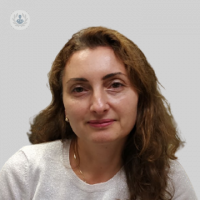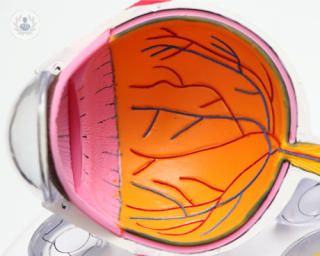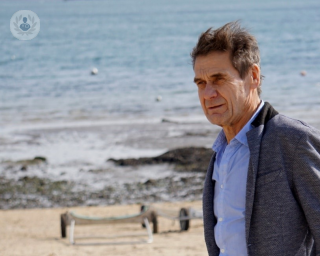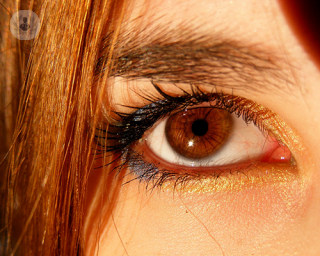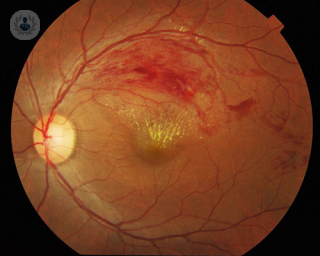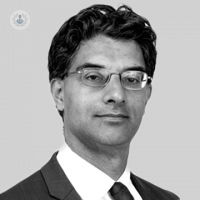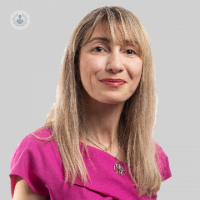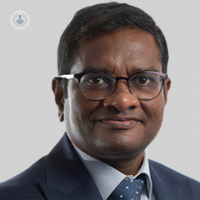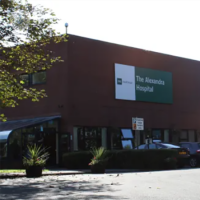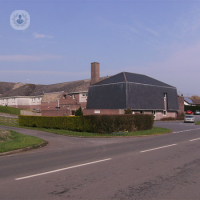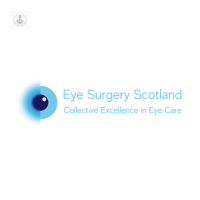Retinal vein occlusion
Mrs Kapka Nenova - Ophthalmology
Created on: 05-26-2017
Updated on: 10-09-2023
Edited by: Aoife Maguire
What is retinal vein occlusion?
Retinal vein occlusion is a blockage in the vein that carries blood away from the retina.
The retina is a layer of tissue at the back of your eyeball and is responsible for turning light into brain signals. The retina needs a steady supply of blood to function. If it has too little blood or blood becomes trapped in the retina, it can cause cell damage.
Because retinal vein occlusion involves a blockage in the vein, blood is unable to drain from the retina, and the blood leaks into the eye causing damage in a number of ways.
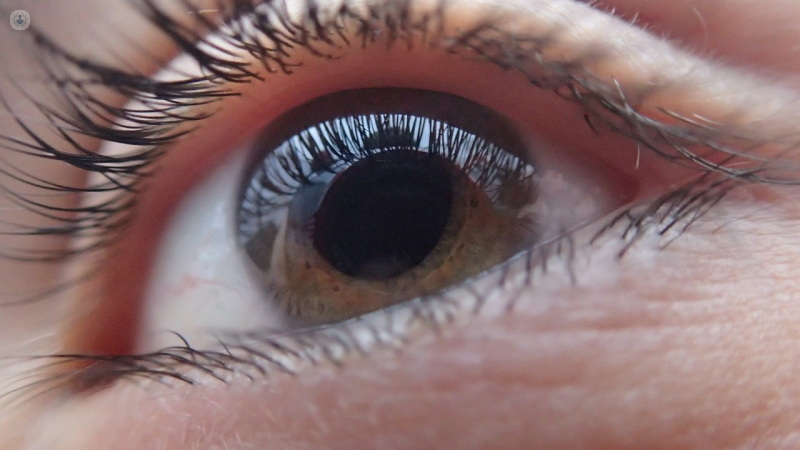
What are the symptoms?
The symptoms almost always affect only one eye, and can vary depending on exactly where the damage has occurred:
- if blood leaks into the macula it can become swollen leading to blurred vision or vision loss
- if blood leaks into the vitreous, small spots in your vision called floaters can form
- in severe cases, the retina might detach from the back of the eye
Sometimes you can experience pain in the eye.
If you have any of the symptoms above it is important to see a doctor right away.
How is retinal vein occlusion diagnosed?
Retinal vein occlusion is diagnosed with an eye exam that may involve the use of eye drops to open up your pupils, and tests such as a fluorescein angiography or optical coherence tomography.
What causes retinal vein occlusion?
Retinal vein occlusion is more common if you have a condition that affects how blood flows around your body. For example, if you have diabetes or high blood pressure, you are more likely to experience blood clots, and if this occurs in the retina it can cause retinal vein occlusion.
Other conditions which increase your risk of developing retinal vein occlusion include:
- glaucoma
- previous damage to the eye
- blood cancers including leukaemia and multiple myeloma
Finally, you are more likely to experience retinal vein occlusion if you smoke, you are overweight, or you are over the age of 60. Retinal vein occlusion is much less common in younger adults and in children.
How can retinal vein occlusion be prevented?
You can help reduce your risk of developing retinal vein occlusion by stopping smoking and taking steps to reduce your blood pressure through a healthy diet and regular exercise.
It’s also important to make sure the symptoms of any other conditions, such as glaucoma or diabetes, are under control.
How is retinal vein occlusion treated?
Damage to your eye from retinal vein occlusion is not always completely reversible and it is not currently possible to unblock the vein that is causing the problem. However, there are several treatments to help restore your vision stop the problem getting worse:
- if you experience persistent swelling in your macula, eye injections can reduce the swelling. There are different type of eye injections available so it’s important to discuss the most suitable one for you. If macular swelling is causing blurriness in your vision then this treatment can help restore your eyesight
- if new blood vessels have formed around your retina, these might need to be blocked off with laser eye surgery.
Which type of specialist treats retinal vein occlusion?
Retinal vein occlusion is treated by a specialist ophthalmologist.
